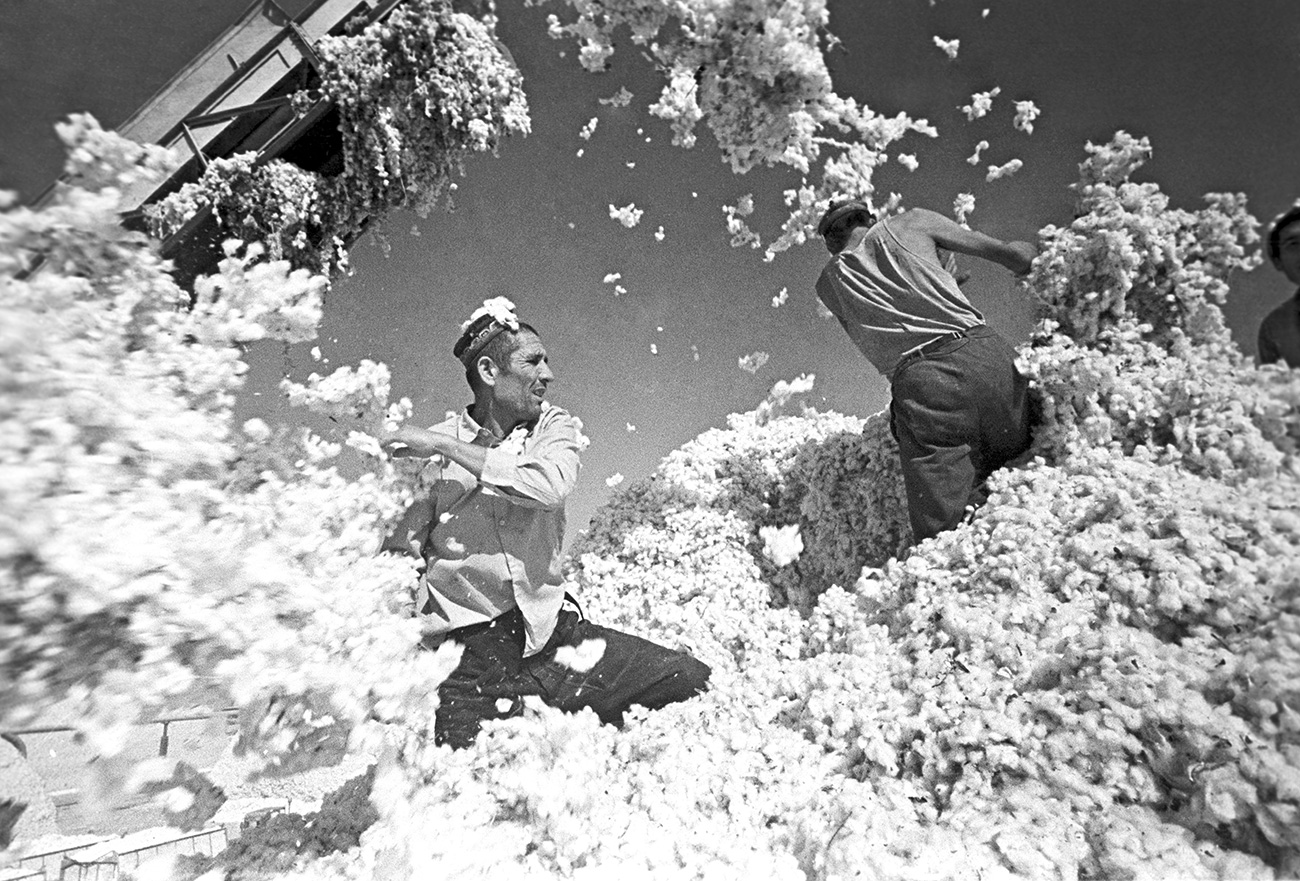
As a result, during the late Soviet period the production of this valuable raw material became a magnet for fraud. // Uzbek SSR, 1976
Zelma/RIA Novosti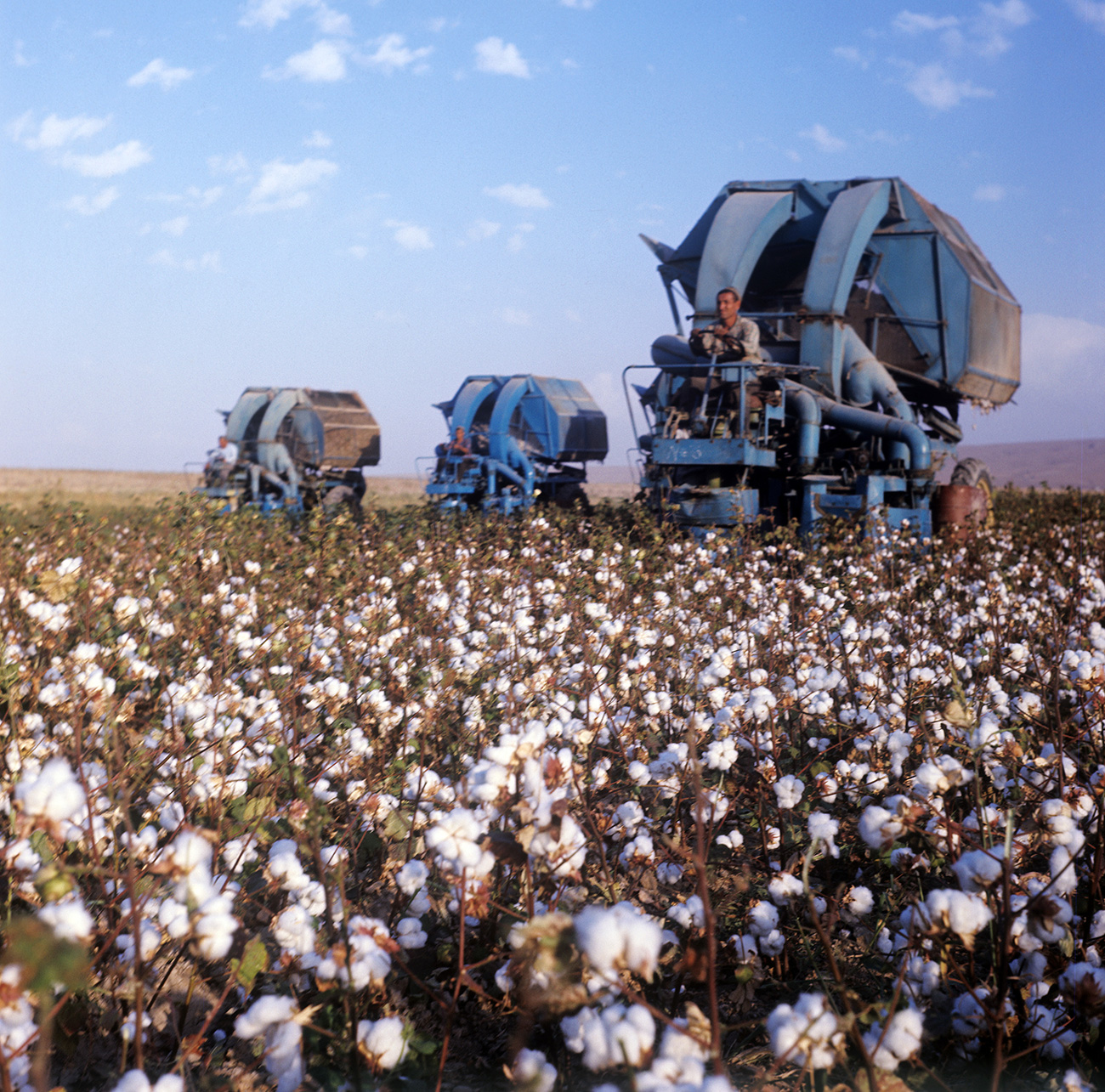
Cotton in the Soviet Union was a raw material of great strategic importance. Not only was it a vital element in the production of weapons, but it provided affordable clothing for the country’s population. // Cotton harvesting, Uzbek Soviet Socialist Republic (SSR), 1973
R. Shamsutdinov/TASS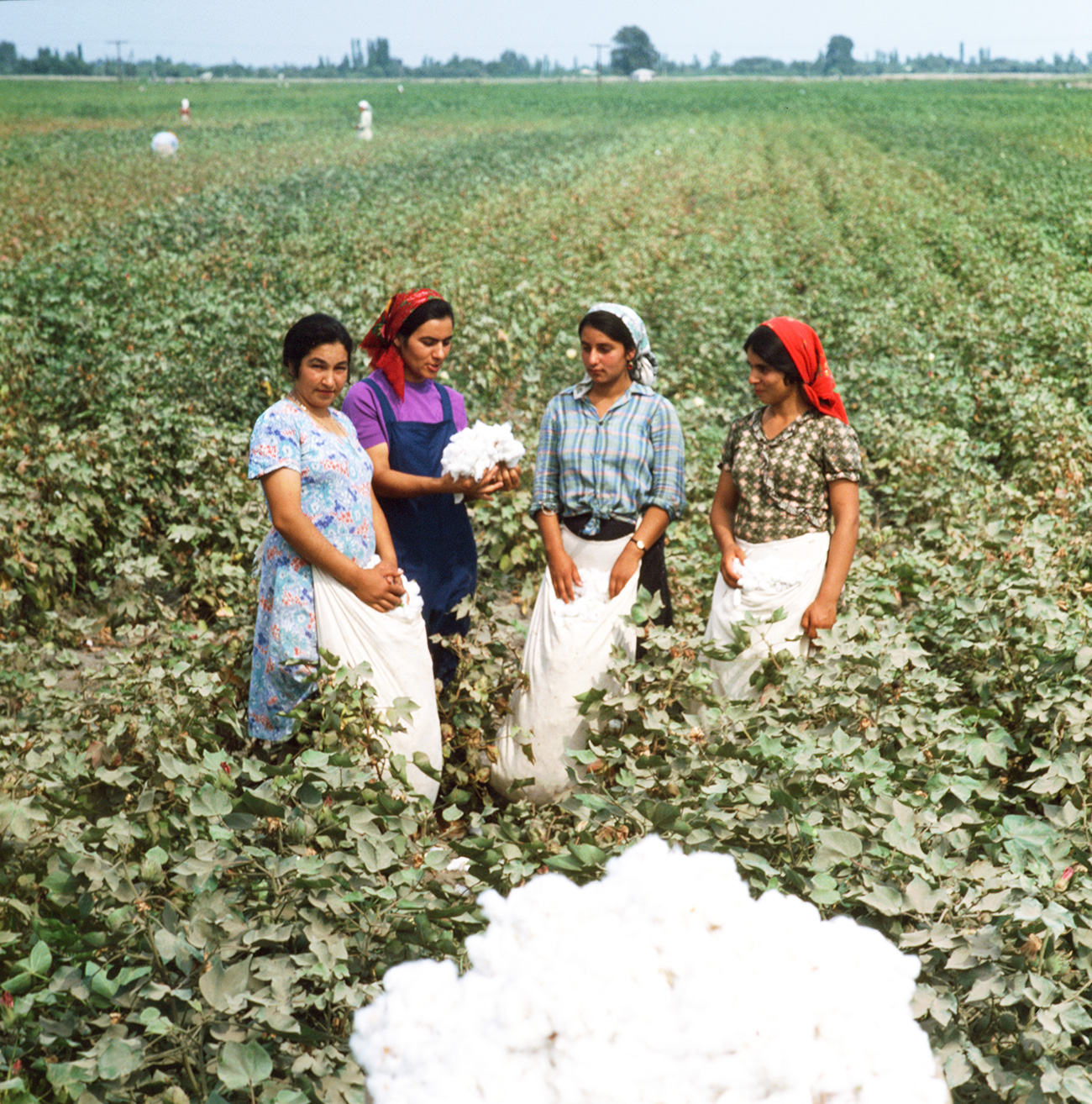
According to official data from the early eighties, the Soviet Union led the world in “white gold” production. // Azerbaijan SSR, 1979
F. Nuraliyev/TASS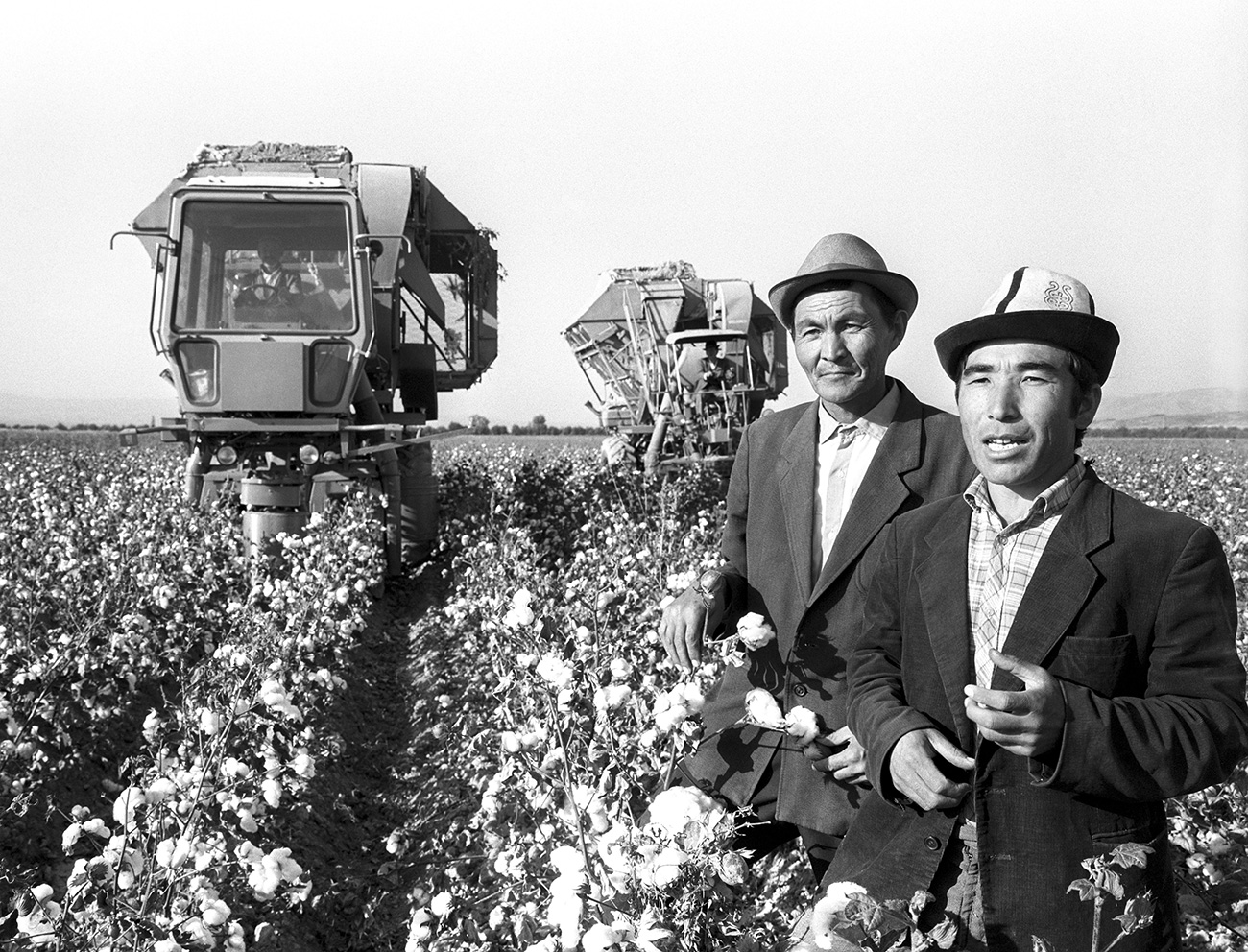
It was mainly cultivated in the Central Asian republics of Uzbekistan, Kyrgyzstan, Turkmenistan, Tajikistan, and Kazakhstan. Although they were part of the USSR, the way of life there was markedly different. // Kazakh SSR, 1988
A. Kadyrkulov/TASS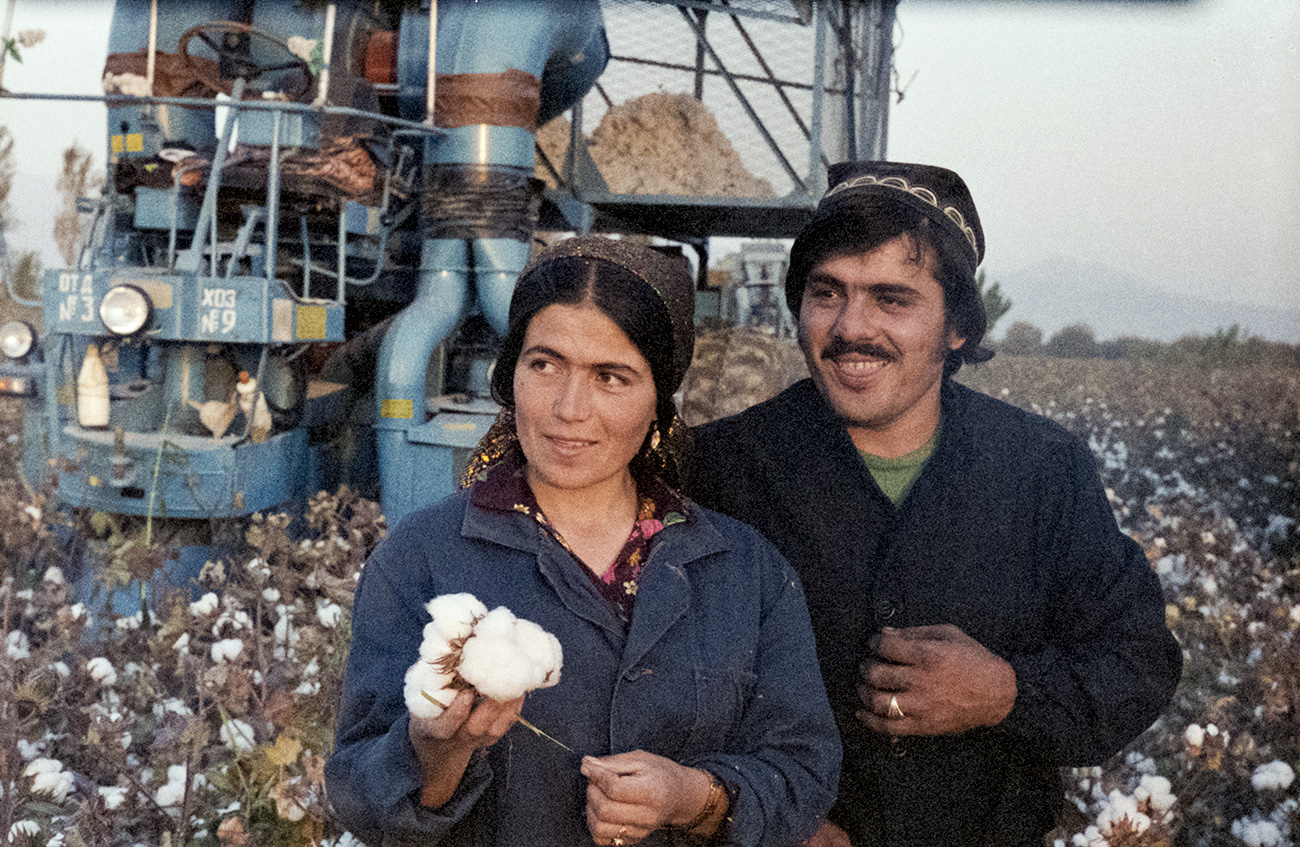
Despite socialism ruling in the cities, much of the countryside still operated according to feudal traditions. // Tajik SSR, 1980
Mahmud Babadzhanov/TASS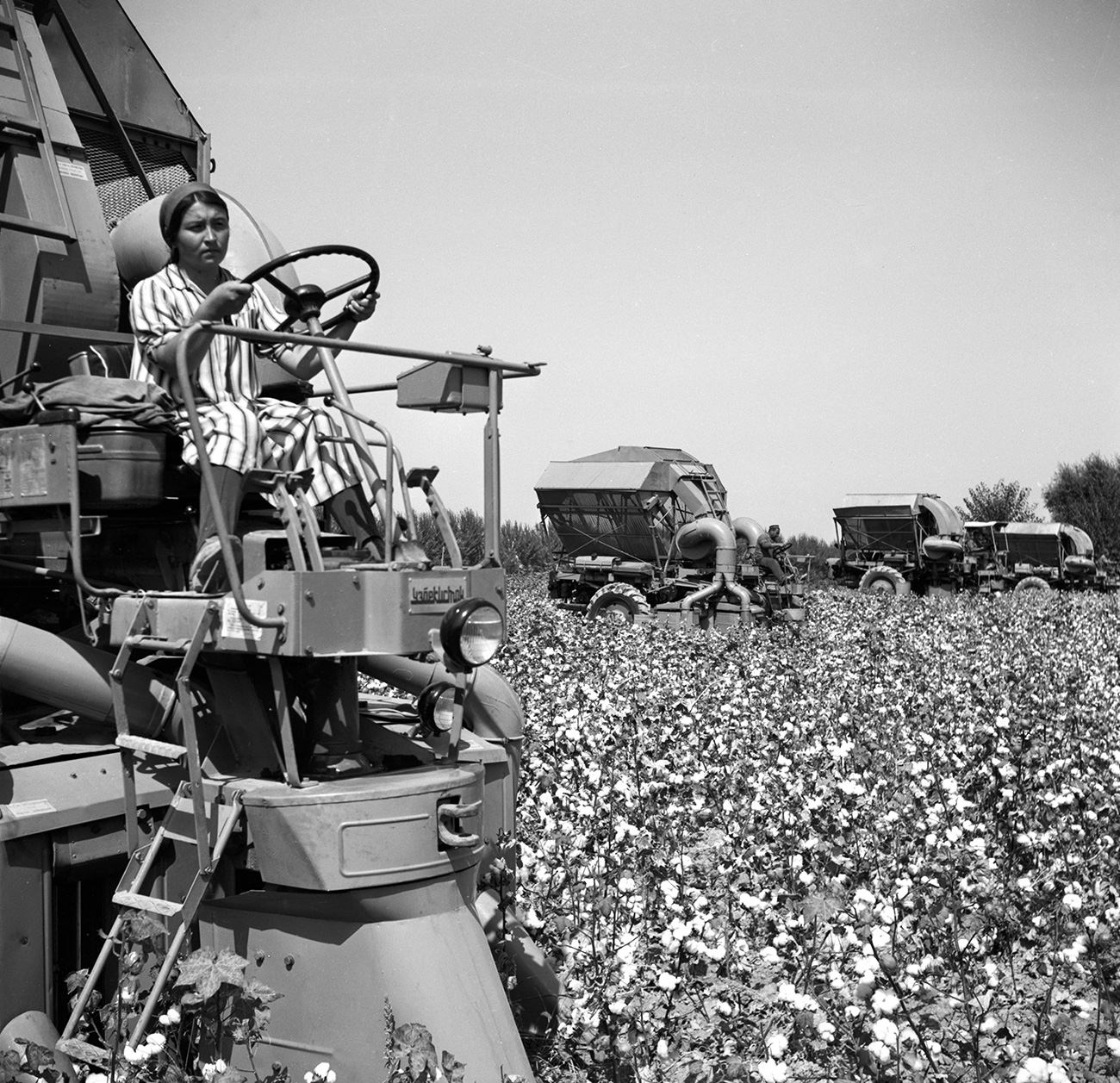
As a vital commodity for the central authorities, cotton was a real curse for some regions. A huge amount was grown in Uzbekistan. // Uzbek SSR, 1972
E.Kornienko/TASS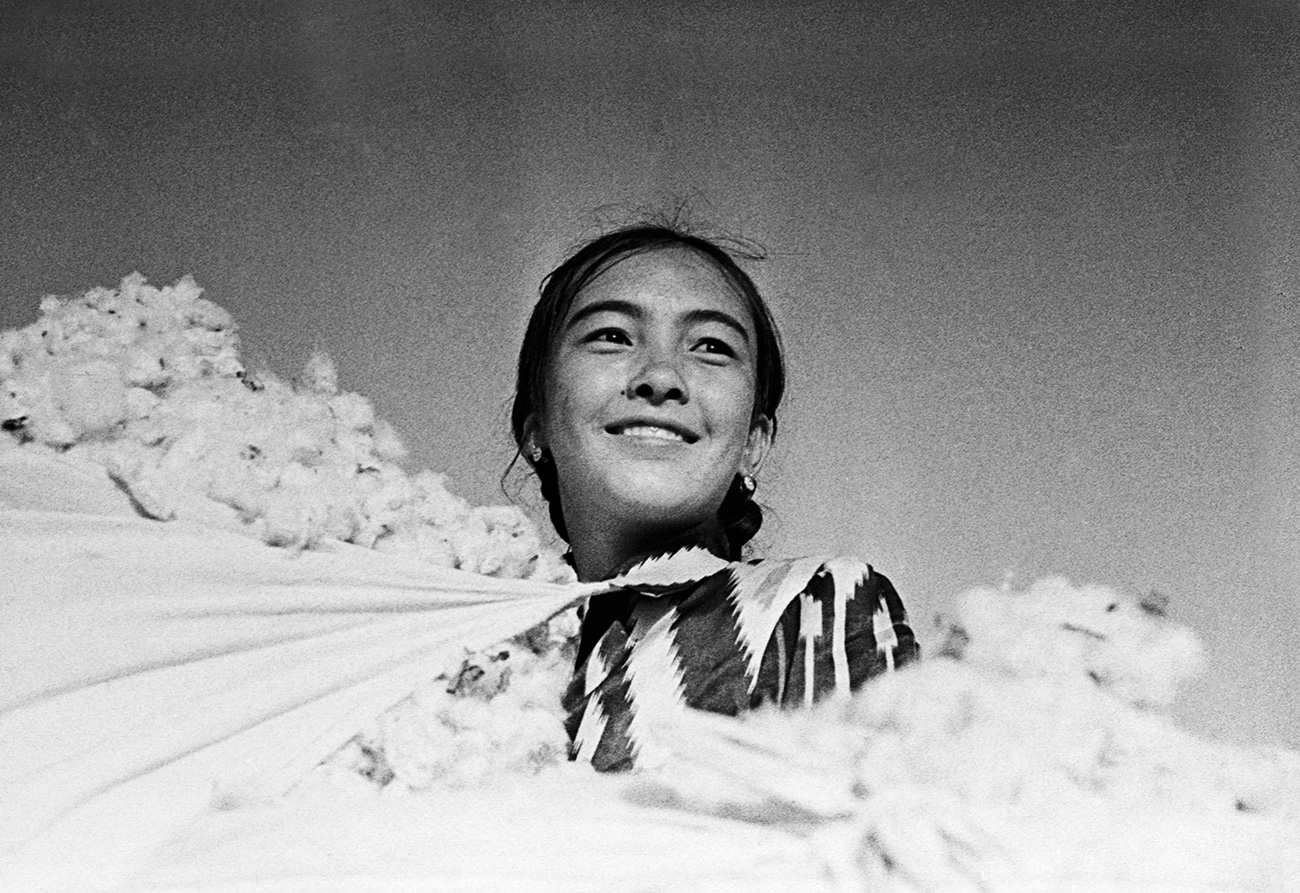
In February 1976, the head of the Uzbek Soviet Socialist Republic - Sharaf Rashidov - stated that Uzbekistan would supply the Soviet Union with 5.5 million tons of cotton each year, up from four million tons. // Uzbek SSR, 1973
Alisher Usmanov/TASS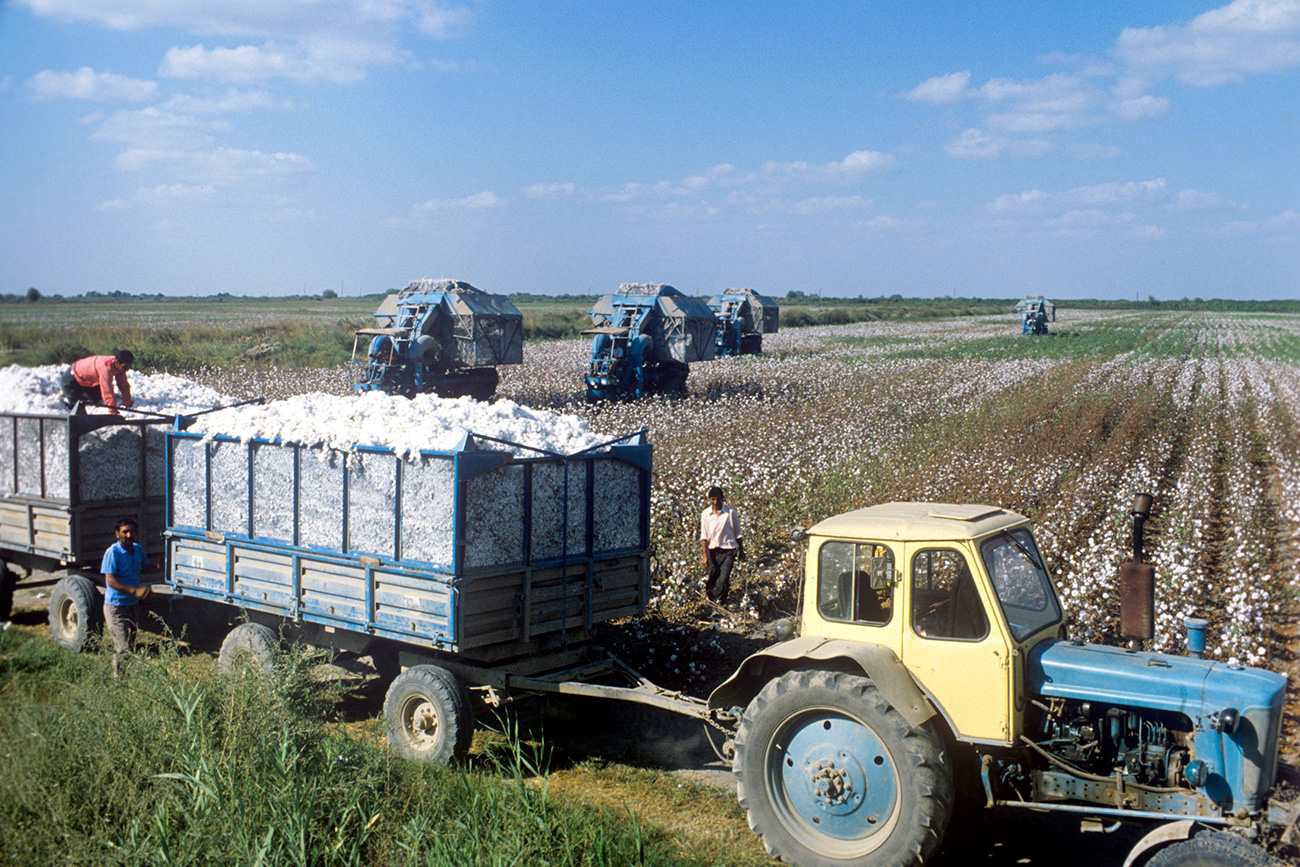
This commitment literally sold the people into servitude. Almost everyone was involved in the gathering of cotton. Even children stopped going to school until the last strand of cotton had been handpicked in the fields. // Azerbaijan SSR, 1979
V. Kalinin/RIA Novosti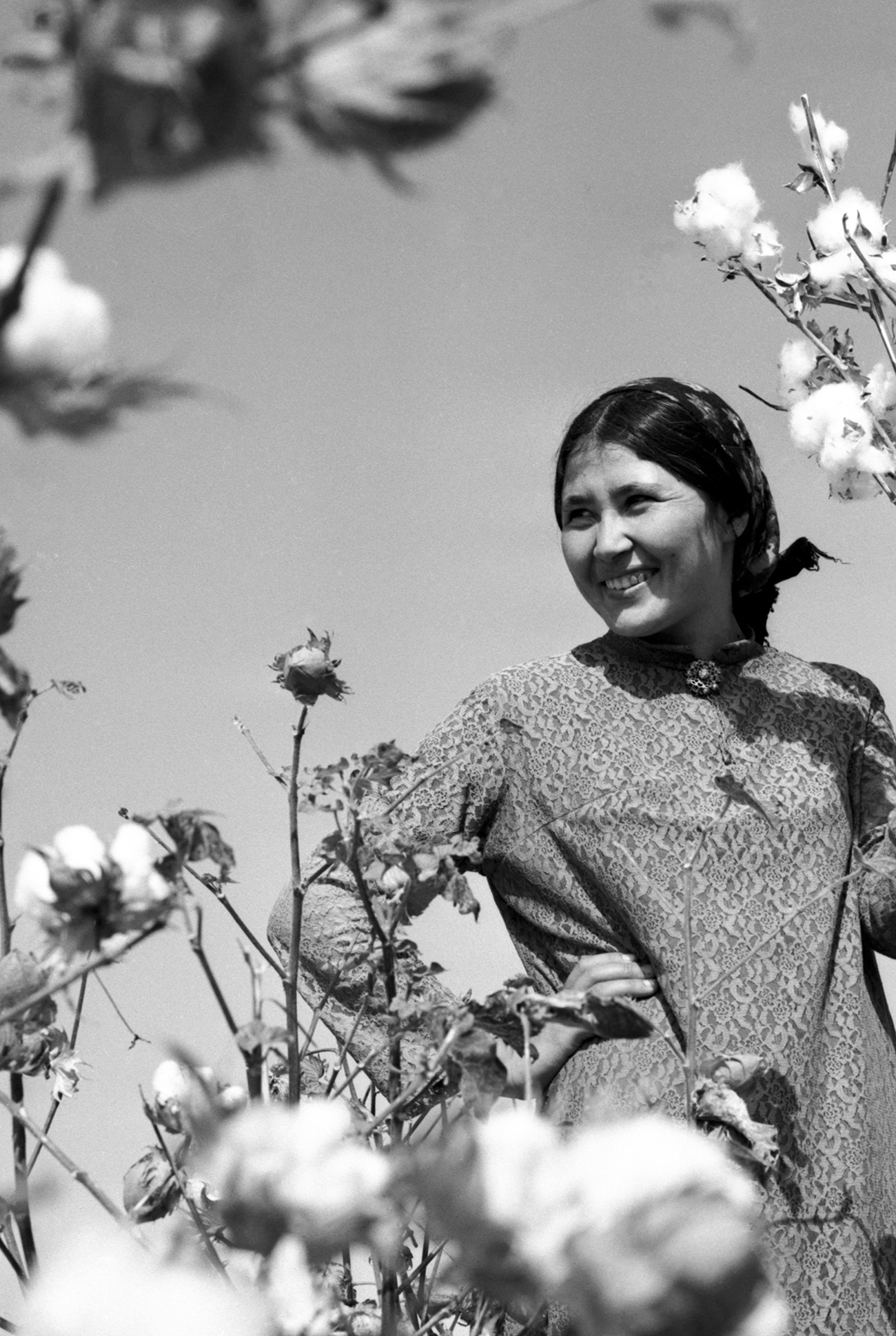
However, even with maximum deployment of human resources, it was impossible to grow so much cotton. // Turkmen SSR, 1978
K.Muradov/TASS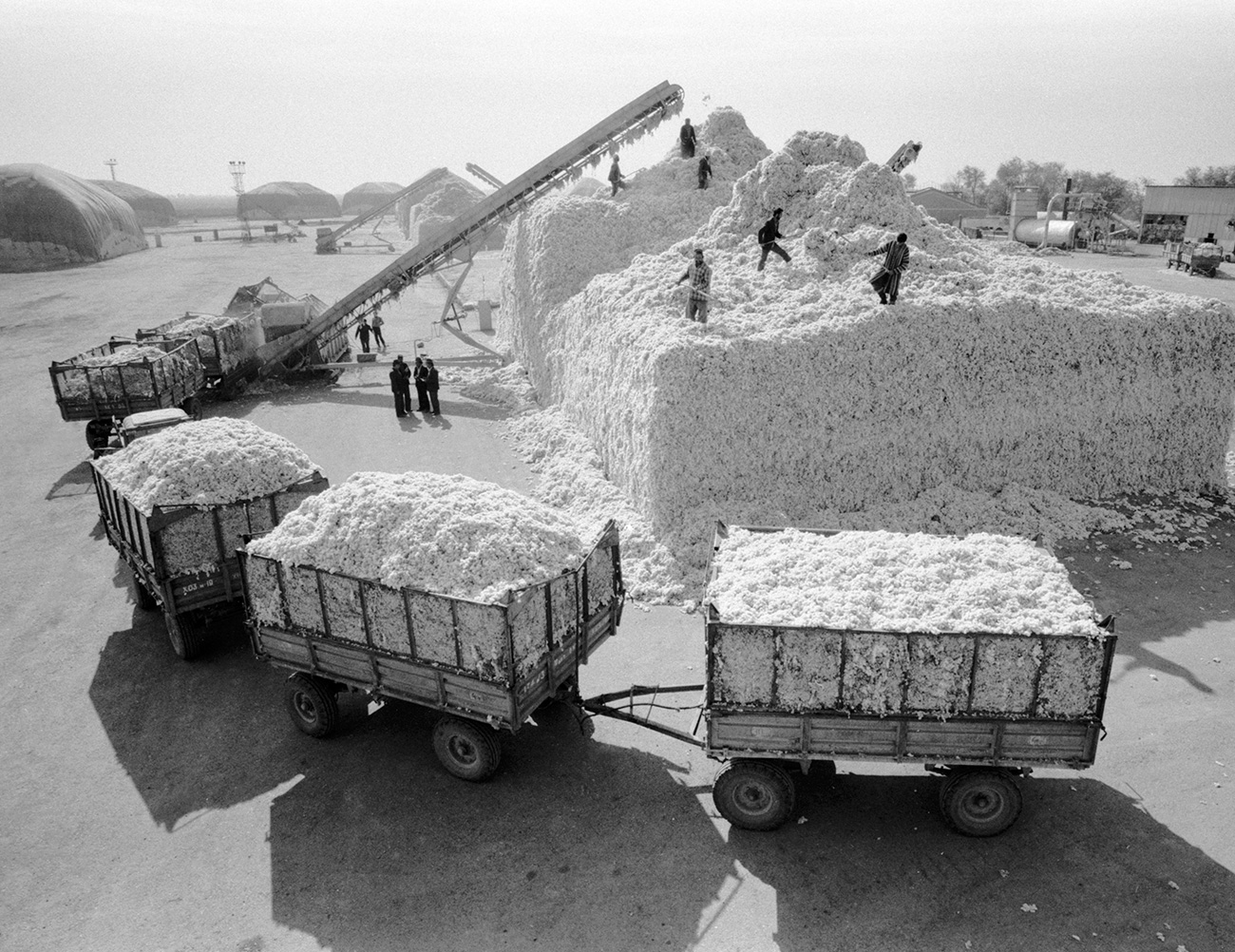
To make up for the shortfall, cottonpickers started putting stones in their sacks, and empty rail carriages were dispatched to Moscow where dishonest officials would take bribes to record them as being full. // Kazakh SSR
I.Budnovich/TASS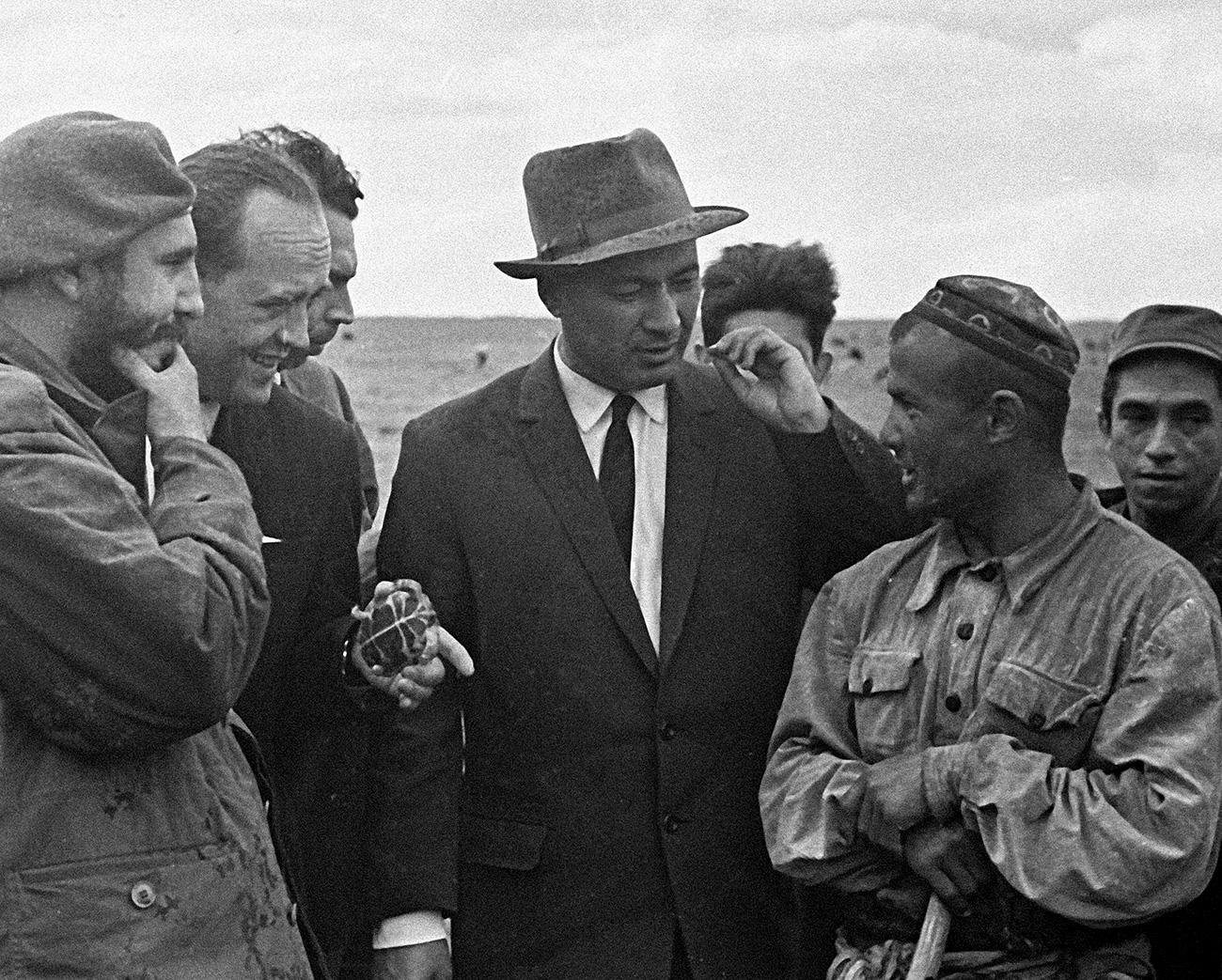
The entire scheme collapsed after the death of Leonid Brezhnev in 1982. Yuri Andropov then rose to power, who for many years had collected "kompromat" (compromising evidence) implicating the Uzbek authorities. // Fidel Castro (L) and First Secretary of Uzbekistan's Communist Party Sharof Rashidov (2nd R) and a shepherd at the Sverdlov collective-farm, 1963
Vasily/RIA Novosti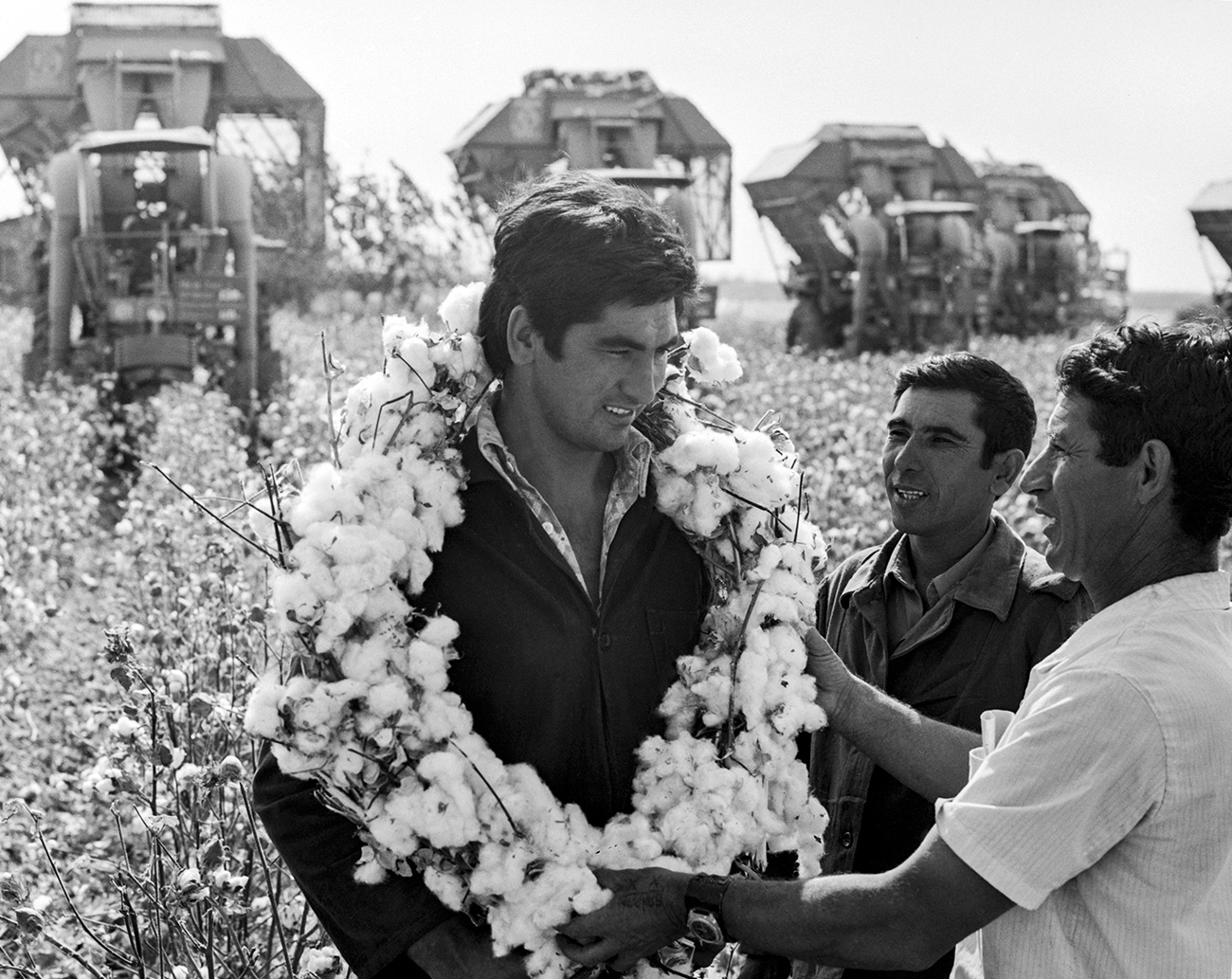
In 1983, according to legend, Andropov phoned Rashidov and asked how much cotton would actually be gathered. Rashidov suffered a stroke after this conversation, but it was rumored he drank poison. // Turkmen SSR, 1977
K.Muradov/TASS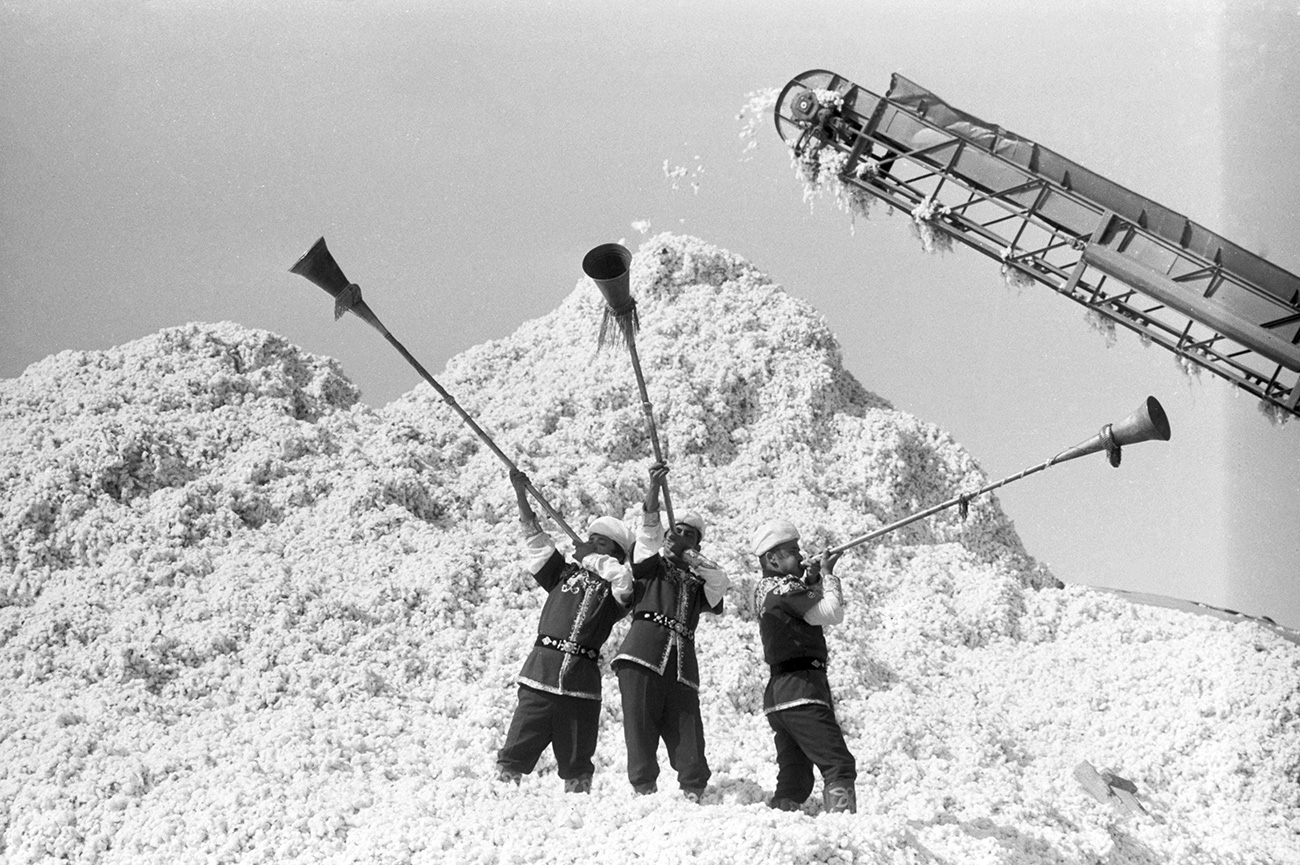
Soon afterwards, a team of central investigators was sent to Uzbekistan to “unpick” the “cotton scandal,” so to speak. Their probe resulted in lengthy jail terms for all involved, and those spearheading the scandal were handed maximum penalties. // Uzbek SSR, 1982
Rustam Shagayev, Sh.Sharapov/TASSSubscribe
to our newsletter!
Get the week's best stories straight to your inbox